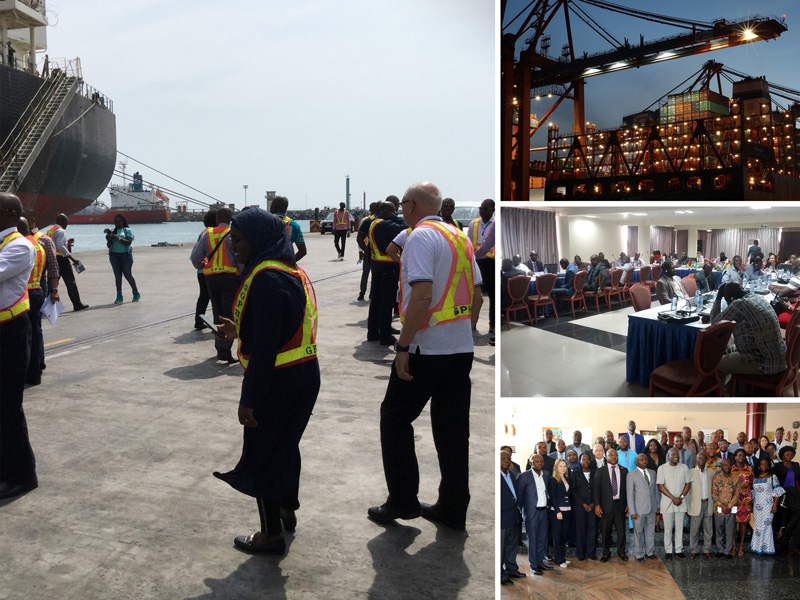Maritime security depends on the capacity of national authorities to develop effective port security plans and procedures and the ability to self-audit. A regional workshop for participants from a number of countries* in the Gulf of Guinea, held in Tema, Ghana (13-16 November) has helped to build national capacity to enhance port security.
The training focused on how to establish multi-agency port and port facility security and facilitation committees with specific terms of reference; and on the drafting of port facility security assessments and plans. A third key area covered included tailored technical expertise on ships and port facilities security, maritime situational awareness, the conduct of harmonized maritime security control and compliance, information sharing, mutual support, contingency planning, joint operations and response based on existing infrastructure.
Lectures addressed piracy, armed robbery and other illicit maritime activities. Key instruments covered included the IMO maritime security measures in SOLAS Chapter XI-2 and the ISPS Code, as well as the ILO/IMO Code of practice on security in ports. Participants also visited the port of Tema, to see in practice how such measures might be implemented.
The programme to enhance port security in west and central Africa was funded by the Government of Denmark. National training workshops on port security and facilitation, with a specific focus on tackling the issue of stowaways (in Cote d’Ivoire, Ghana, Senegal and Sierra Leone), have fed into the final regional workshop.
*Benin, Cameroon, Cote d’Ivoire, Equatorial Guinea, Gabon, Ghana, Nigeria, Sao Tome & Principe, Senegal, Sierra Leone and Togo.
